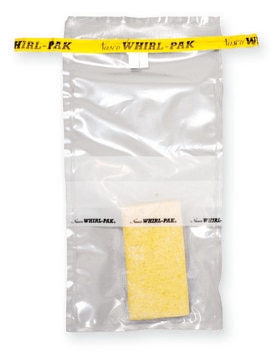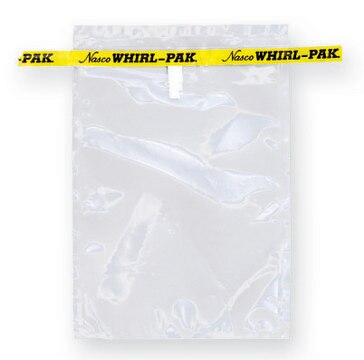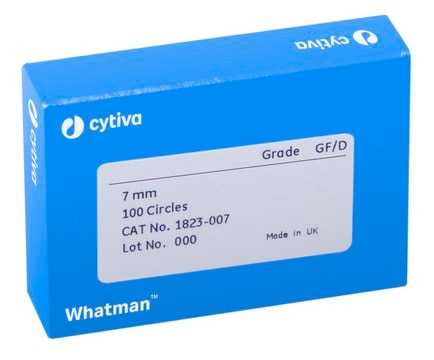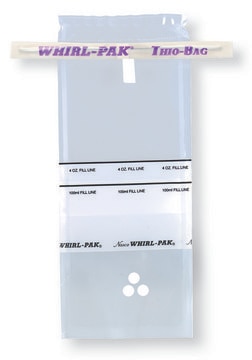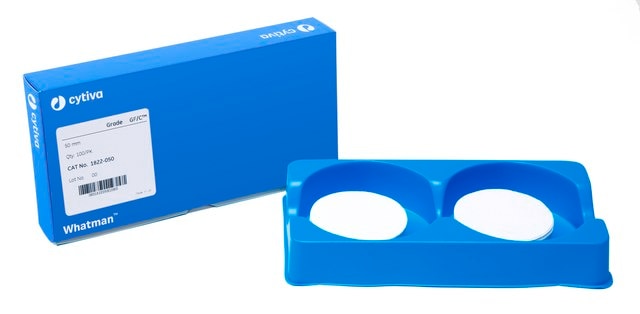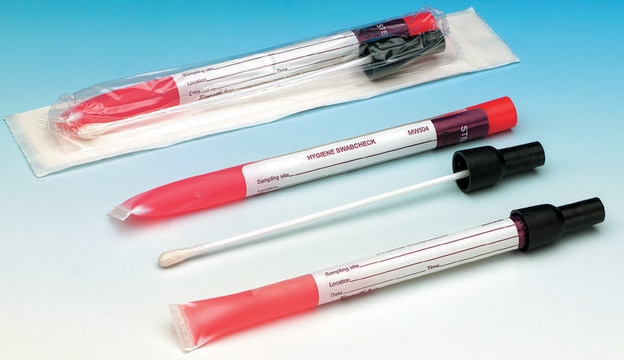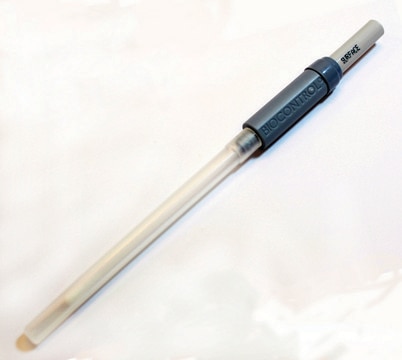WPB01245WA
Whirl-Pak® Speci-Sponge® Environmental Surface Sampling Bag
532 mL(18 oz)
Synonym(s):
sample collection bag, sampling bag, surface sampling bag
Sign Into View Organizational & Contract Pricing
All Photos(1)
About This Item
UNSPSC Code:
24111500
NACRES:
NB.35
Recommended Products
sterility
sterile
packaging
pkg of 100 ea
manufacturer/tradename
B01245WA (Nasco)
Speci-Sponge®
Whirl-pak®
W × L × thickness
11.5 cm × 23 cm × 0.064 mm
capacity
532 mL × 18 oz
532 mL(18 oz)
Looking for similar products? Visit Product Comparison Guide
Related Categories
General description
Designed for environmental surface sampling of work areas, equipment, animal carcasses, and any other place where testing for Listeria, Salmonella, E.coli, coliforms, and other foodborne pathogens, or anthrax is required.
The special dry sponge is free of bactericides and has been tested to be non-inhibitory. Wearing a sterile glove when wiping with the sponge is recommended to help prevent contamination. After the sample has been collected and the sponge returned to the bag, it can be sent to a lab for testing. In the lab, media may be added directly to the bag and the sample incubated inside the bag for a +/- test, or the sample may be squeezed out of the sponge, pipetted, and plated out.
The special dry sponge is free of bactericides and has been tested to be non-inhibitory. Wearing a sterile glove when wiping with the sponge is recommended to help prevent contamination. After the sample has been collected and the sponge returned to the bag, it can be sent to a lab for testing. In the lab, media may be added directly to the bag and the sample incubated inside the bag for a +/- test, or the sample may be squeezed out of the sponge, pipetted, and plated out.
Legal Information
Speci-Sponge is a registered trademark of The Aristotle Corporation
Whirl-pak is a registered trademark of The Aristotle Corporation
Certificates of Analysis (COA)
Search for Certificates of Analysis (COA) by entering the products Lot/Batch Number. Lot and Batch Numbers can be found on a product’s label following the words ‘Lot’ or ‘Batch’.
Already Own This Product?
Find documentation for the products that you have recently purchased in the Document Library.
Customers Also Viewed
M F Peruzy et al.
Food microbiology, 92, 103593-103593 (2020-09-21)
Conventional methods for Yersinia enterocolitica detection in food samples are generally considered inadequate. Problems arise from the presence of the so-called "background flora", coupled to the low contamination level of the pathogen. Since, data on the microbial ecology occurring in
Maria Francesca Peruzy et al.
International journal of food microbiology, 336, 108902-108902 (2020-10-23)
Routine evaluation of the slaughter process is performed by the enumeration of the aerobic colony count, Enterobacteriaceae and Salmonella spp. on the carcass through destructive or non-destructive methods. With non-destructive methods, bacteria are counted from a minimum area of 100 cm2
Our team of scientists has experience in all areas of research including Life Science, Material Science, Chemical Synthesis, Chromatography, Analytical and many others.
Contact Technical Service